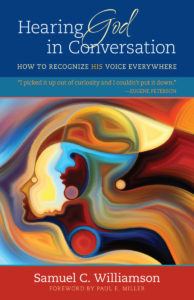A pastor-friend of mine once went through a series of disappointments. His favor with his followers faltered, his once fruitful ministry began to fail, and many of his former friends became his biggest opponents. And that was before events really got bad.

My friend was well known. If I told you his name, you’d probably recognize it. And his meteoric fall from favor was not due to any moral scandal on his part. Yet rejection and controversy, like circumstantial evidence against him, attacked from every side:
- He began with a big splash and became famous in a few short months;
- His fame attracted detractors, and major church leaders spoke against him;
- His followers, who used to think he walked on water, began to drift away;
- Then his treasurer embezzled funds;
- Over time, his ministry crashed and burned.
And, of course, he asked God, “Why?”
Look at Job’s Life
We instinctively imagine that the events of our lives reflect God’s favor, as though blessings and blows are the barometers through which we gauge the rightness of our deeds. The sun shines when we’ve taken our prayer times, and storms threaten because we failed to tithe.
Simple formulas ignore Scripture. God said of Job, “There is none like him in all the earth.” Then tragedies immediately befell him: the theft of his working animals, the incineration of his sheep, the murder of his servants, and the death of his children.
Job cries, “Why?” We all do, even when the trials of our lives are mild. But much more so in the great heartbreaks of life: liver cancer, a spouse who divorces us, or a child born with autism.
We cry, “Why?” because we think these disasters display God’s punishment of hidden sin. Or obvious sin. But either way, retribution! Job keeps asking God, “Why, God, did you allow this to happen?” And his friends keep telling him that all his miseries must surely be his own fault.
God never answers Job’s question. God never breathes a hint of an echo of a shadow of an answer. He does something else instead. God simply reveals himself.
It’s Ingrained in Us
Whenever we suffer misfortune, we think it’s punishment. When the disciples see a man born blind, they ask if the blindness is punishment for his sin or his parents. Jesus says it’s neither, it is so that God’s power can be displayed through him.
It’s not the answer we want to hear. We want God’s power to be shown through his blessings.
But the revelation should relieve us. Circumstances in our lives are ordained by God so that his life shines through us. We try to wriggle out of them, fix them, or blame someone. When our kids disobey or our company downsizes us, we look for tips and techniques to improve our conditions. We cry, “Why?” and then fight adversities with our own abilities.
We are fighting God. God uses difficulties to invite us to greater intimacy with him. To see him.
And It Has Always Been This Way
We picture the disasters of our lives as circumstantial evidence to accuse us. God says these circumstances are evidence he is turning us into burning bushes. He allows them that we may share in the sufferings of Christ. And so let him live in us, with his life shining through ours.
My pastor-friend was a great, one-of-a-kind guy. Repeatedly, God used his words, deeds, and his life to say, “There has never been one like him in all the earth.”
And then they crucified him.
Sam
P. S. To nurture the life of God in us, we need to hear God’s voice. Is God silent these days? He isn’t. Watch this short video (92 seconds) from Coffee Shop Conversations:
[vimeo id=”189561250″]
[button href=”https://www.amazon.com/Hearing-God-Conversation-Recognize-Everywhere/dp/0825444241/ref=cm_cr_arp_d_product_top?ie=UTF8″ primary=”true” centered=”true” newwindow=”true”]Buy Now[/button]
To grow in intimacy with God, we need communication. If you want to nurture that  divine dialogue with God, may I suggest you buy Hearing God in Conversation.
divine dialogue with God, may I suggest you buy Hearing God in Conversation.
Eugene Peterson said, “I picked it up out of curiosity, and I couldn’t put it down.”
Gary Wilkerson wrote, “This is a remarkable book that teaches both how to hear God’s voice in Scripture, and then to hear his voice in every avenue of life. It’s filled with humor, insight, practical tips, and sound theology. I can’t recommend a better guide than Hearing God in Conversation.”

 Twin Motivations
Twin Motivations
I’m an ordinary person who has cried out to God “Why?” many times. I’m thankful for the message in your book. I have also learned (and am still learning) that I don’t need to know the answer. I go back to that image of me as a little girl on the praries, holding my “Moses” doll, an innocent look of child-like trust on my face. I kick off my shoes and run, free and safe. I knew Jesus was always with me.
I still don’t understand “Why?” but I’ve learned to kick off my shoes and run free and safe under my Father’s loving gaze. But, most of all I’ve learned to lift up those who’ve hurt me to God and just say, “Here, you bless them.”
Love,
Annie
Hi Annie,
I don’t think God minds our “why” questions; it’s just that the answer he gives is different than we expect. I think God is pleased whenever we just turn to him.
Thanks for sharing part of your personal story.